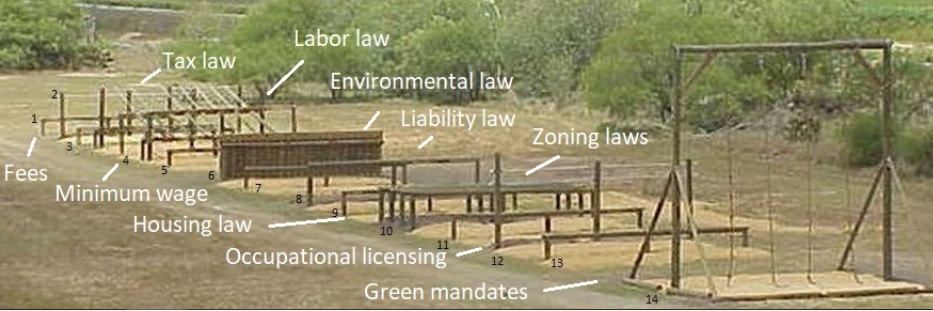California is a fascinating state for people who follow public policy. It has some immense advantages, such as climate, coastline, and natural resources.
But it also has high taxes, absurd regulations, a bloated bureaucracy, and a costly welfare state.
The net result of all these factors is mixed. There are some sectors that are still thriving, such as high tech, but there’s also evidence that the Golden State is losing ground.
And the comparative data will probably get worse over time because many taxpayers and businesses are now fleeing to lower-tax states.
Since I specialize in public finance, I’m tempted to say bad fiscal policy is California’s biggest problem. And that may actually be the case.
But if someone asks me for an example of what’s wrong with the Golden State, I’m going to direct them to this story in the Los Angeles Times.
The California Legislature on Monday approved a $100-million plan to bolster California’s legal marijuana industry, which continues to struggle to compete with the large illicit pot market nearly five years after voters approved sales for recreational use. …State officials initially expected to license as many as 6,000 cannabis shops in the first few years, but permits have been issued only for 1,086 retail and delivery firms. In 2019, industry officials estimated there were nearly three times as many unlicensed businesses as ones with state permits. …The $100 million would go to local agencies with the most provisional licenses for growing, manufacturing, distribution, testing and retail operations. Some of the money can be used by cities offering equity funding to cannabis businesses owned by people of color.
Yes, you read correctly.
The state did a smart thing (removing legal prohibitions on marijuana), but did it in the worst possible way (burdening the sector with high taxes and red tape).
As a result, there’s still a very robust black market.
Here are some additional details about how politicians and bureaucrats have made it difficult to operate a legal business.
Many cannabis growers, retailers and manufacturers have struggled to make the transition from a provisional, temporary license to a permanent one renewed on an annual basis — a process that requires a costly, complicated and time-consuming review. …some face two to four years to get through the licensing process. Many would face the prospect of shutting down, at least temporarily, if they don’t get a regular license by current state deadlines, Kiloh said. …Supporters of legalization blame the discrepancy on problems that they say include high taxes on licensed businesses, burdensome regulations… A key requirement to convert from a provisional license is to conduct a CEQA review to indicate how pot farms and other cannabis businesses will affect the surrounding water, air, plants and wildlife, and to propose ways to mitigate any harms. However, Kiloh said, some cities are just setting up ordinances and staffing to process licenses, meaning many businesses cannot meet the looming deadline. …industry officials note the money will go to a small fraction of California cities, and only those that have already decided to allow cannabis businesses. …said Kiloh, owner of the Higher Path cannabis store in Sherman Oaks. “The real problem is CEQA analysis is a very arduous process,” he added. “I think it would be good to have more reform of the licensing system instead of just putting money to it.”
Wow, provisional licenses, permanent licenses, CEQA analysis, taxes, regulations, reviews, and ordinances.
Sounds like my regulatory obstacle course. No wonder so many buyers and sellers of pot prefer the black market.
And Mr. Kiloh is correct. The solution is to deregulate, not to dump more money into the system.
No wonder California is a mess.
P.S. The late (and great) Walter Williams joking speculated whether California should set up East German-style border controls to prevent taxpayers from escaping.
P.P.S. There is a pro-secession group in California, though they should be careful what they wish for.



